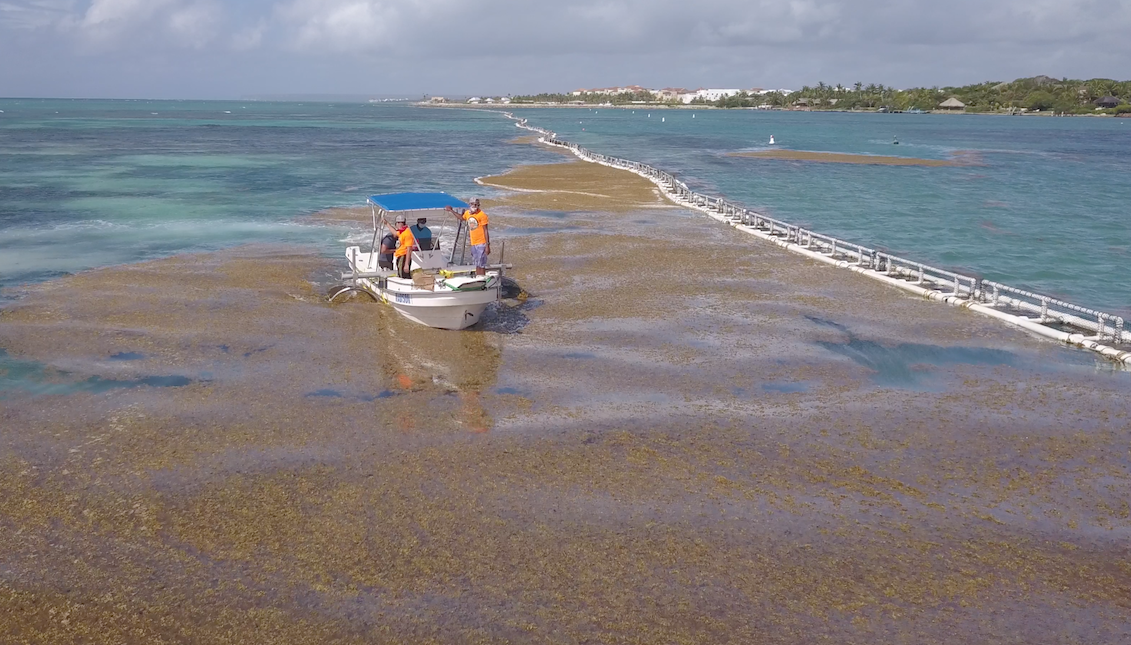
Obama's 'Hemispheric Warming' Is A Good Harbinger
With forays to Mexico and the Summit of the Americas in Trinidad and
Tobago, Barack Obama has succeeded in conveying a new U.S. attitude
—and policy direction — for relations with Latin America.
The trips were preceded by policy actions.
His one-day stay-over and meeting with President Felipe Calderón in Mexico City on April 16, intended to show solidarity in that country’s fight against drug-trafficking cartels.
In the month preceding Obama’s arrival in Mexico City, Secretary of State Hillary Clinton had acknowledged that the United States shared responsibility stemming from the uncontrolled U.S. demand for illicit drugs and gunrunning supplying the cartels.
In mid-March Homeland Secretary Janet Napolitano announced an initiative to mobilize more border-enforcement teams by multiplying the number of intelligence analysts working on the border and stepped up searches of vehicles going into Mexico.
Just prior to Obama’s departure for Mexico, Alan Bersin was named
“border czar.” The former U.S. Attorney in San Diego and later its school superintendent was in charge in the mid-1990s of implementing "Operation Gatekeeper," which fortified the area’s border gateway. The measure effectively shifted illegal immigration to dangerous desert crossings to the East.
Fluent in Spanish, Bersin becomes the “go-to” person in the administration on illegal immigration and drug violence issues along the border.
Calling it a protocol visit, TheNews.com of Mexico City quoted governing National Action Party deputy Cristián Castaño as saying, “”All the signals that we’ve received from President Obama is that he wants to establish a new relationship.”
After a meeting with Mexico President Felipe Calderón, Obama announced he planned to support an inter-American weapons treaty meant to fight the drug trade. The treaty, adopted by the Organization of American States, was signed in 1997 by former President Bill Clinton but was never ratified by the U.S. Senate.
While Obama was in Mexico before departing for the summit, Raúl Castro reacted to the thaw in relations coming from the White House announcement that the Administration was withdrawing restrictions on U.S. citizens traveling to visit family members and on remittances to the island. While attending meetings in Venezuela, Castro said, “[W]e are prepared, wherever they want, to discuss everything — human rights, freedom of the press, political prisoners — everything, everything, everything that they want to discuss."
The Cuban president was attending a rump meeting of leftist Latin American presidents, hosted by Venezuela’s antagoniste President Hugo Chávez.
The U.S. announcement and Castro’s response diffused tension expected at the Summit over inviting Cuba to rejoin the OAS. Cuba was expelled in 1962.
Reintegration to the OAS can only be considered if the Cuban government or a group of OAS member-countries requests it.
In 1998, Mexico had led an initiative to form a "group of friends" to reintegrate Cuba. Canadian ambassador Lloyd Axworthy had called the proposal a good idea. The United States has been increasingly alone on maintaining the half-century-old exclusion of Cuba from the community of American nations.
At the summit, Obama told leaders at the opening ceremonies, “The United States seeks a new beginning with Cuba.” White House press secretary Robert Gibbs made clear the United States was not abandoning the demand that Cuba make concrete moves toward democracy and human rights. OAS president José Miguel Insulza said he would ask the 34 member-nations to annul the 1962 resolution in May and invite Cuba back into the fold.
At the conclusion of the meetings, Obama spoke of "launching a new era of partnerships." He said he could saw "potential positive signs" of better relations with Cuba and Venezuela.
He added, “the test for all of us is not simply words but deeds".
(José de la Isla write a weekly commentary for Hispanic Link News Service. Reach him by email at [email protected])
©2009









DEJE UN COMENTARIO:
¡Únete a la discusión! Deja un comentario.